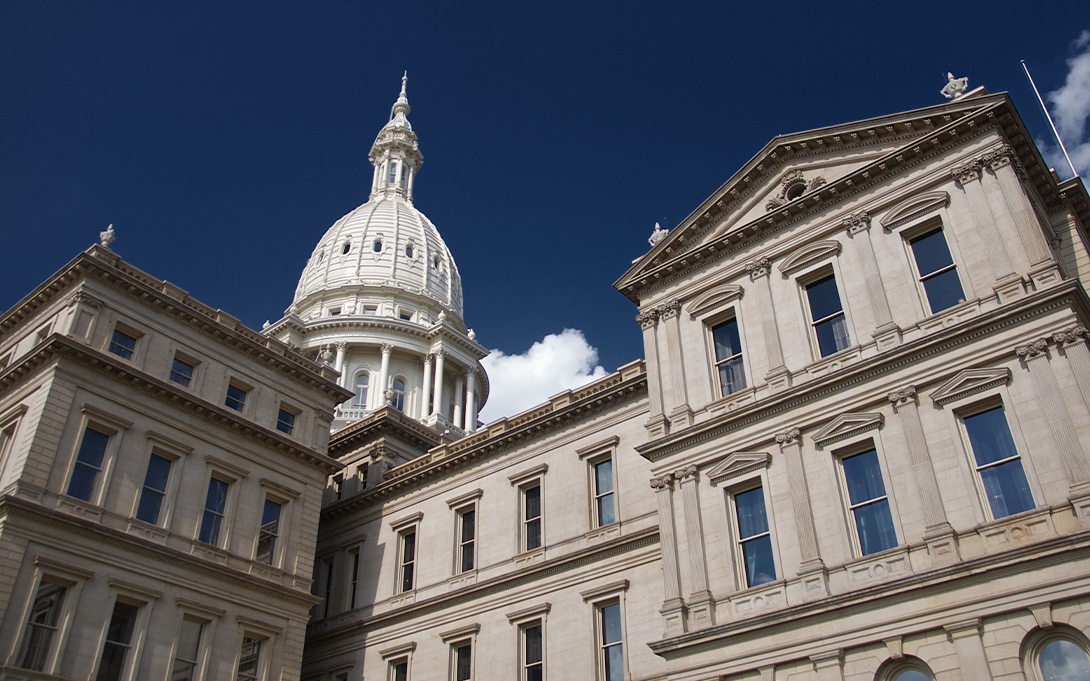
Leaders across Michigan have reported problems supporting their communities in the first months of the COVID-19 pandemic—with many saying they failed to get needed health or financial help in one of the hardest-hit states, according to a survey by the Ford School's Center for Local, State, and Urban Policy (CLOSUP)
Although reported impacts in the first couple months of the pandemic have been extensive, Michigan's local leaders generally expected various COVID-19 impacts would be relatively short-lived. As the survey continued through April and May, many of those assessments grew more pessimistic.
The spring 2020 Michigan Public Policy Survey, which reached roughly 1,350 leaders of counties, municipalities and townships, is conducted annually by CLOSUP. It usually focuses first on the fiscal health of local jurisdictions but researchers retooled the survey to also gather information about COVID-19's local effects, including emergency preparedness, intergovernmental coordination and the pandemic's local impact.
Among the survey's key findings:
-
Majorities of local leaders reported significant or even crisis-level impacts on the state overall (93%), local schools (88%), local economic conditions (86%), their residents' welfare (70%) and their own communities overall (67%).
-
Large percentages of local leaders—though less than half—also reported significant or crisis-level impacts on their jurisdictions' local emergency response capabilities (43%), public health in their community (42%), the continuity of their own government's operations (40%) and their delivery of public services (37%).
-
Statewide, 39% of jurisdictions already had an emergency response plan in place or quickly adopted one in response to COVID-19, and these are reportedly working well.
-
Relatively few local jurisdictions reported getting the public health or financial resources they needed in April and May, when Michigan was one of the hardest-hit states in the nation.
-
Although almost every jurisdiction across the state has felt significant pain in their local economy, among the state's largest jurisdictions (30,000 or more residents) two-thirds (67%) characterized these economic impacts as crisis-level in April and May, compared with 52% of mid-sized jurisdictions and fewer than half of smaller jurisdictions.
"While most of the public health impacts have hit our urban areas, especially in southeast Michigan, the economic fallout is hitting every part of the state. We've tracked poor fiscal health in many communities across Michigan since the Great Recession, but unfortunately things look to get worse from here," said Tom Ivacko, interim director of CLOSUP.
Debra Horner, the survey project manager, said she and her colleagues typically get responses from more than 70% of Michigan's local governments. That response rate, she adds, allows her team to provide detailed information to policymakers about impacts of the pandemic from large and small government units across every region.
Launched in the wake of the Great Recession in 2009 by CLOSUP, the survey is conducted in partnership with the Michigan Association of Counties, Michigan Municipal League and Michigan Townships Association. Click through to see the
See the full CLOSUP Report.
The Center for Local, State, and Urban Policy is a University-wide resource housed at the University of Michigan's Gerald R. Ford School of Public Policy. CLOSUP functions as an information resource for policymakers and practitioners, academics, students, the media, and the public. The Center works to foster effective communication between academic researchers, stakeholders, and the policymakers dealing with today's state, local, and urban policy problems. The Center also facilitates student learning and engagement with today’s critical policy issues.
The Michigan Public Policy Survey (MPPS) is a program of state-wide surveys of local government leaders in Michigan. The MPPS is designed to fill an important information gap in the policymaking process. While there are ongoing surveys of the business community and of the citizens of Michigan, before the MPPS there were no ongoing surveys of local government officials that were representative of all general purpose local governments in the state. Therefore, while we knew the policy priorities and views of the state's businesses and citizens, we knew very little about the views of the local officials who are so important to the economies and community life throughout Michigan.
Tom Ivacko joined CLOSUP at its founding in the fall of 2001 and serves as associate director of the Center. He also oversees the Michigan Public Policy Survey (MPPS) program and has been the lead or co-author on more than 50 MPPS publications covering a wide range of state and local government policy topics. He previously served as study manager, program manager and administrator for 11 years with the American National Election Studies at the University of Michigan's Institute for Social Research. Outside of work, Tom serves as a board member and past president of a nature area non-profit organization that focuses on stewardship and elementary school environmental educational opportunities in Ann Arbor, MI. He has a bachelor's degree in political science and a master's in public administration, both from the University of Michigan.
More news from the Ford School
